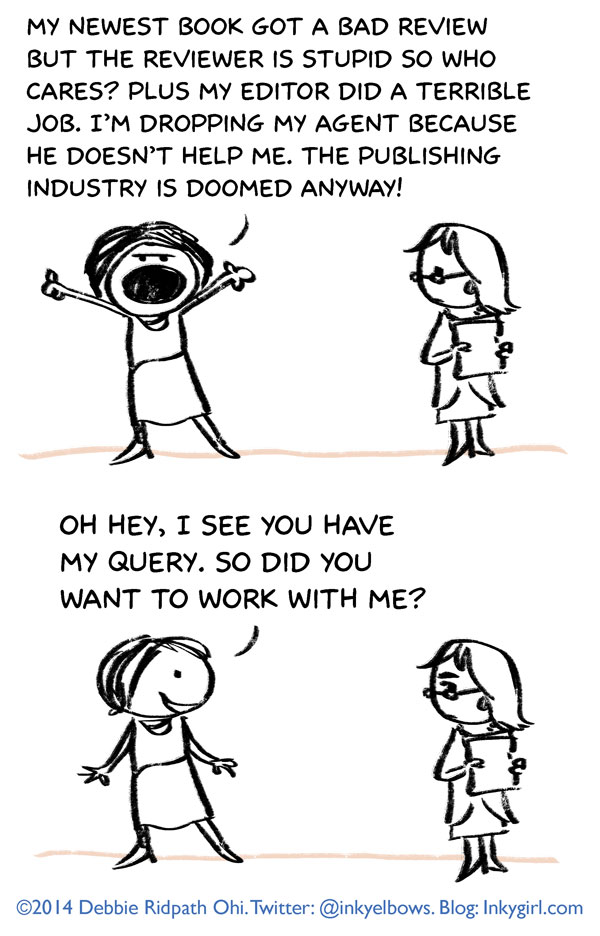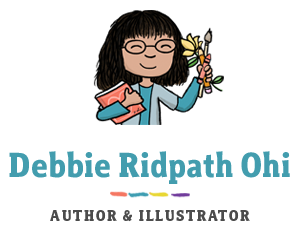
In prep for my Social Media Masterclass for Authors and Illustrators at SCBWI-Midwest, I posted a survey for editors, agents and art directors and 25 responded. Only one freelance art director responded (feel free browse art directors’ responses in the similar poll in 2014, which also includes responses from editors and agents), but there were 11 responses from PAL editors, 10 responses from agents, and 3 responses from “Other”. For those that don’t know, PAL stands for “Published and Listed” and PAL Publishers are traditional publishing houses that do not charge money to authors or illustrators. You can find a list of PAL Publishers on the SCBWI website. Be aware that these industry surveys are informal, and are answered mainly by those who follow me on Twitter – I posted the link to my survey on Twitter, FB and Instagram. Most respondents chose to remain anonymous or asked me not to identify them publicly; I included attribution for those who gave me permission. Thanks to all who participated!
Summary and Takeaways:
Overall, the results were very similar to my poll from 2014. In general: when editors, agents and art directors look you up online, the main turn-offs include unprofessional behaviour and overall negativity. Before they commit to working with you longterm, they want to find out more about you. Make it easy for them to find out more information about you: keep your website updated and easy to navigate, make your portfolio (for illustrators) easy to find, make it easy for them to contact you.
If you read the comments, you will notice that different people are looking for different things. Don’t feel overwhelmed! In the end, you need to figure out how YOU want to use social media. What are your specific goals? What type of connections do you want to make? You will save yourself a great deal of time and frustration if you are working toward a particular goal (rather than “my publisher wants me to be on social media so here I am”). Jane Kelly recently interviewed me about social media on the SCBWI Wisconsin blog; feel free to browse for tips. And if you’re an up-and-coming illustrator attending SCBWI-LA this year, I encourage you to apply for the Social Media Mentorship For Illustrators Award.
MORE DETAILS AND COMMENTS FROM THOSE WHO ANSWERED MY SURVEY:
**** Also see comments from my 2014 survey.
In answer to the question “How important has social media been in your discovery of new clients / book creators?“, 40% said it was somewhat important, 36% said very important and 24% said not very important.
In answer to the question “When you are considering taking on a new client / author / illustrator, do you ever research them online?“, 84% said that yes, they always research them online. The remaining 16% said that yes, they sometimes research them online.
In answer to the question “If you do online research before signing on a client / author / illustrator, has your research ever made you decide NOT to sign them on?“, 52% said that yes, they have (at least once) decided to NOT sign someone on after online research.
In answer to the question “Which social media do you tend to use most often?” (check all that apply), Twitter came out on top with 96% (not surprising, since most of the respondents follow me on Twitter) followed closely by Instagram (80%), then Facebook (56%) and YouTube (32%). Also mentioned by a few: Pinterest, LinkedIn, Tumblr, Reddit. My advice: find 1-2 social media platforms that you enjoy – don’t try to be everywhere!
In answer to the question “When browsing social media, do you ever browse Stories?“, 28% said never, 24% said rarely, 20% chose “I have no idea what you’re talking about”, 16% said yes, all the time, and 12% said yes, sometimes.
COMMENTS (about turn-ons/turn-offs, what they look for, social media advice):
“I shy away from accounts that post mostly negative opinions, and anyone conservative-leaning. Other than that, humor and irony are appreciated, anything celebratory, positive or progressive, and cute animal pics. :)” – Agent
“I do like to see new work and process work as well as book promo. It’s tricky to balance but the best accounts also show personality and an awareness of other work being done in the field.”
“I primarily research new illustrators and like to see a illustration portfolio within a few clicks of finding someone on social media.” – Freelance art director
“Being inappropriate; someone who complains publicly about agents; someone who often leaps into heated arguments online; someone who is clearly jealous of successful people in the business.” – Editor
“I appreciate genuine engaged social media interactions and value authors that can do this with ease as it is incredibly beneficial for both buzz and sales.” – Jennifer Weltz, President of JVNLA, Inc.
“I look for professionalism.” – Emma Dryden, Children’s Editorial & Publishing Consultant, Drydenbooks
“I look for authors and illustrators who share their enthusiasm for what brings them joy, whether it’s a bird sighting or stumbling across an old comic book or sharing an esoteric fact in their research. I try to avoid authors and illustrators who are quick to “pile on” and express their outrage about the latest industry pariah (whether Junot Diaz, Kosoko Jackson, etc.)” – Agent
“Love when authors and illustrators interact with readers.” – Editor
“If people have a website or blog, it should be up to date. If it can’t be up to date, take it down.” – Erin Murphy, President of Erin Murphy Literary Agency
“We have to work together for a lengthy period. If you come across as difficult, rude, negative, or politically extreme it makes me think twice about working with you. There’s a lot of talent out there. Why would I put myself in that position?” – Editor
“For illustrators, extra work to see is good! For everyone, some evidence that you’re not awful and don’t just talk about writing is good, too. I just mostly want to know you are who you say you are.” – Editor
“I look for professionalism above all. I look for authors who are effectively engaging to promote their books without stalking editors by filling up their social media feeds. That’s a red flag for me. I also look always for evidence that creators are primarily focussed on developing their work and craft.” – Agent
“Writers get more of a pass on social media, but for illustrators I definitely want to see them experimenting with different styles. If the rest of their work is too hard to find, or there’s no link to a portfolio, that makes it harder to get interested.” – Agent

